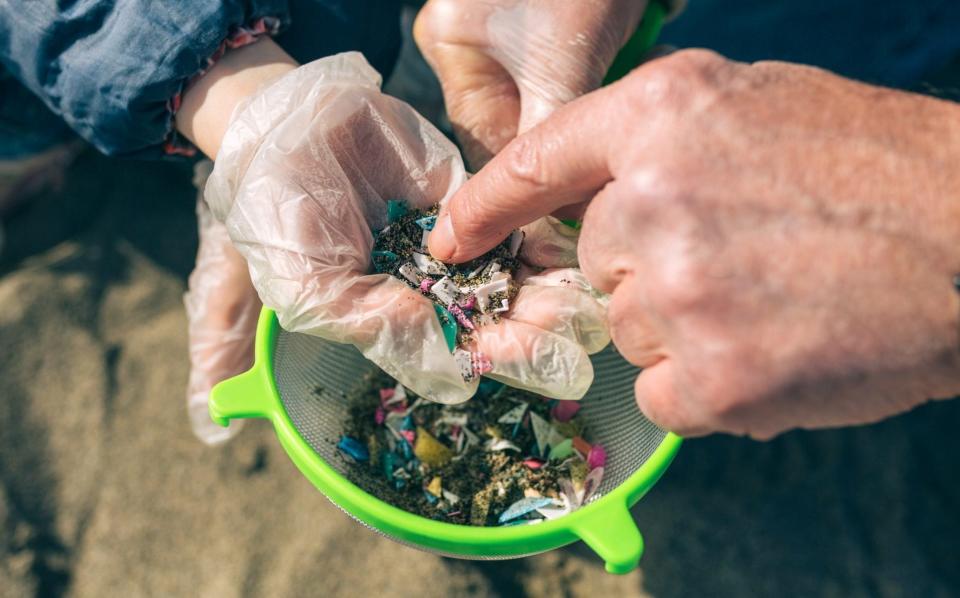Microplastics discovered in human blood for first time

Microplastics have been found in human blood for the first time, according to Dutch research that found particles in nearly 80 per cent of donors.
Scientists found particles in 17 of 22 blood samples, with the most common coming from PET, the plastic used for drinks bottles and food packaging.
Researchers said more work was needed to determine the impact of microplastics in the blood, including whether they build up in the body and could impact organ function or whether they pass through the system.
The study was able to detect microplastics as small as 0.0007mm, which can enter the body via inhalation from particles in the air or ingestion, whether in food or plastic packaging, crockery and cutlery.
A team of scientists at Vrije Universiteit Amsterdam examined blood from 22 anonymous volunteers and tested it for five types of common plastic including PET, polypropylene and polystyrene.
They found the presence of microplastics in 17 samples at an average concentration of 1.6 micrograms per millilitre of blood, the equivalent of one teaspoon in 1,000 litres of water.
The researchers took precautions to avoid contamination, including using equipment made from glass and steel and comparing blood with other samples to gauge background levels of microplastics.

Dr Dick Vethaak, a co-author on the study, acknowledged that the research was a first step and would need to be widened to a bigger sample.
"A lot more research is needed to understand what it means," he said. "We know the plastic is in our body, but where does it go and what does it do?"
The study is the first in the world to test for the presence of microplastics in blood, and Dr Vethaak said the results were to be expected given the ubiquity of plastics.
He said consumers could avoid plastic packaging where possible, and in particular avoid heating food in plastic containers, to mitigate their risks.
Dr Fay Couceiro, a senior research fellow at the University of Portsmouth who was not involved in the study, said it was "an eye-opener".
"The ability to detect its presence is critical to us realising the urgency in our need to do more research in this area," she said. "After all, blood links all the organs of our body and if plastic is there it could be anywhere in us."
The study was published in the journal Environmental International.

 Yahoo News
Yahoo News 
